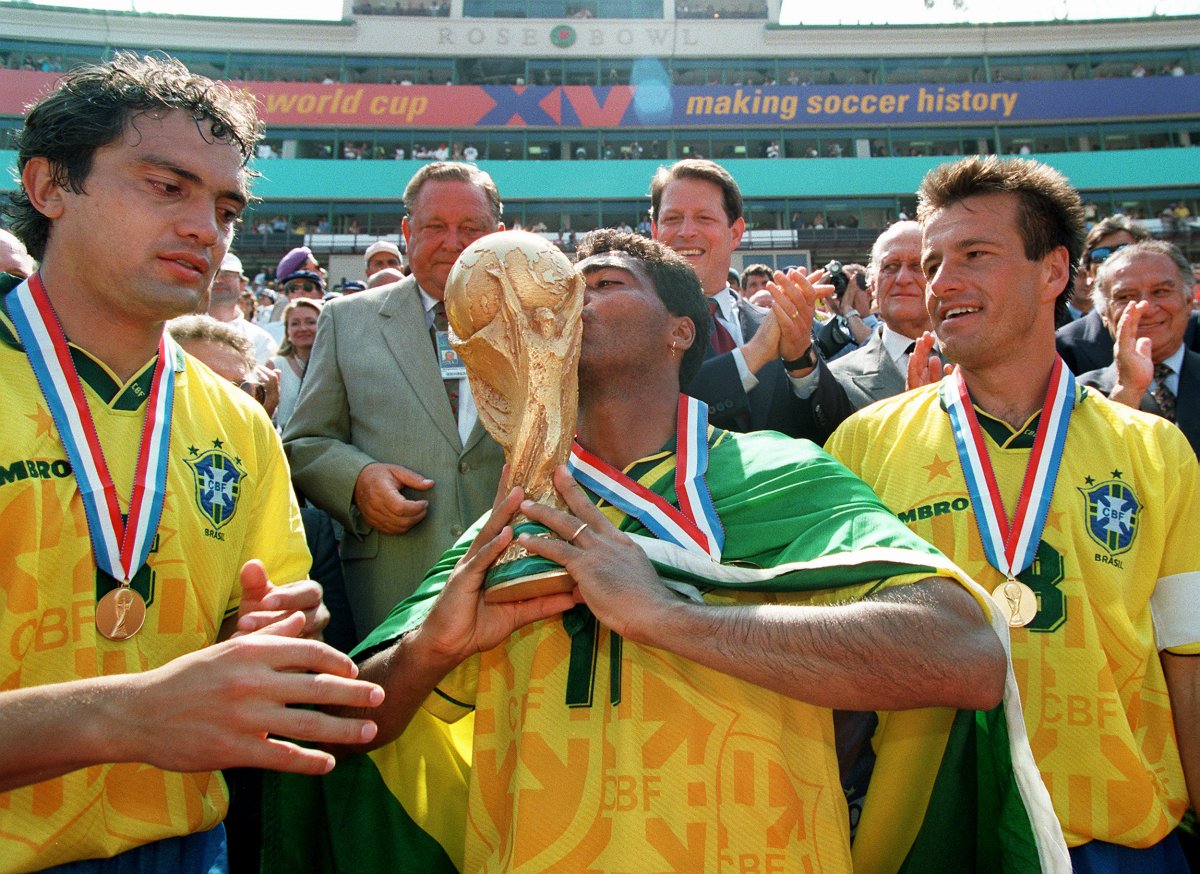The FIFA World Cup is the stuff of many soccer players' dreams and to play in the tournament can be the biggest moment of their career.
Representing their country at the highest level of international competition is a proud moment and the current contest in Qatar is the 22nd World Cup so far.
The competition has been hosted in every continent of the world except for Antarctica and Australasia, though the Women's World Cup in 2023 will be hosted by Australia and New Zealand.
In What Year Did the World Cup Start?
The first World Cup was held in Uruguay in July 1930. It was the only time that there was no qualification for the tournament, with FIFA inviting countries to compete.
Because of the costs involved in crossing the Atlantic, many European countries declined to be involved, much to the frustration of the FIFA president at the time, Frenchman Jules Rimet.

It took his personal intervention to persuade France to attend, while King Carol II of Romania had to negotiate with employers to ensure that the country's amateur soccer players would still have a job if they were packed off to South America to compete.
England had resigned from FIFA at the time and didn't want to take part because it believed that its soccer players were superior and didn't need to go to Uruguay to prove that.
The teams invited to the first World Cup, to join hosts Uruguay, were Argentina, Belgium, Bolivia, Brazil, Chile, Egypt, France, Japan, Mexico, Paraguay, Peru, Romania, Siam (now Thailand), the United States and Yugoslavia.
Siam, Japan and Egypt subsequently withdrew from the tournament before a ball was kicked.
The final was a repeat of the 1928 Olympic soccer final, with Uruguay facing their South American rivals Argentina.
The final was played at the Estadio Centenario in Montevideo on July 30, with the Argentine fans shouting "victoria o muerte" ("victory or death") as they arrived on boats at the city's port.
The attendance was 93,000 and the gates opened six hours before the game so that all the fans could get into the stadium.
The referee was Belgian John Langenus, who agreed to officiate only a few hours before the start of the game, after having sought assurances for his safety.
Among his requests was that a boat was ready at the harbor within an hour of the final whistle in case he needed to make a quick escape, as the atmosphere was very intimidating.
World Cup hosts, back to the first competition
- 2026: Canada, United States and Mexico
- 2022: Qatar
- 2018: Russia
- 2014: Brazil
- 2010: South Africa
- 2006: Germany
- 2002: Japan/South Korea
- 1998: France
- 1994: United States
- 1990: Italy
- 1986: Mexico
- 1982: Spain
- 1978: Argentina
- 1974: West Germany
- 1970: Mexico
- 1966: England
- 1962: Chile
- 1958: Sweden
- 1954: Switzerland
- 1950: Brazil
- 1946: — canceled (WWII) —
- 1942: — canceled (WWII) —
- 1938: France
- 1934: Italy
- 1930: Uruguay

Who Has Won the World Cup?
Eight countries have one the World Cup with Uruguay, Italy, Brazil, Argentina and France winning on multiple occasions.
Germany has also won the cup on more than one occasion, though it won the trophy three times as West Germany before the collapse of the Berlin Wall and the reunification of the country.
FIFA World Cup final results
1930 Uruguay 4-2 Argentina
1934 Italy 2-1 Czechoslovakia (AET)
1938 Italy 4-2 Hungary
1950 Uruguay beat Brazil*
1954 West Germany 3-2 Hungary
1958 Brazil 5-2 Sweden
1962 Brazil 3-1 Czechoslovakia
1966 England 4-2 West Germany (AET)
1970 Brazil 4-1 Italy
1974 West Germany 2-1 Netherlands
1978 Argentina 3-1 Netherlands (AET)
1982 Italy 3-1 West Germany
1986 Argentina 3-2 West Germany
1990 West Germany 1-0 Argentina
1994 Brazil 0-0 Italy (AET) (Brazil won 5-3 on penalties)
1998 France 3-0 Brazil
2002 Brazil 2-0 Germany
2006 Italy 1-1 France (AET) (Italy won 5-3 on penalties)
2010 Spain 1-0 Netherlands (AET)
2014 Germany 1-0 Argentina (AET)
2018 France 4-2 Croatia
AET = After Extra Time
* There was no official World Cup final match in 1950. The tournament winner was decided by a final round-robin group contested by four teams. Brazil and Uruguay faced each other in the final game, which Uruguay won in front of 173,850 spectators at the Maracanã Stadium in Rio de Janeiro, Brazil.
How Often Is the World Cup?
The World Cup is played every four years apart from during World War II, when it was suspended. This meant there were no competitions between 1938 and 1950.

When Is the Next World Cup?
The next World Cup is in 2026 and will be played across the United States, Canada and Mexico. This means that all three countries automatically qualify for the tournament.
The destination in 2030, for the centennial tournament, has yet to be decided.
Among those expected to bid will be joint offerings from Spain, Portugal, and Ukraine and another from Saudi Arabia, Egypt and Greece.
Who Won the World Cup Four Times?
Three countries have won the World Cup four times or more. Italy and Germany (three as West Germany) have lifted the trophy on four occasions while Brazil is the only nation to have won it five times.
Brazil - 1958, 1962, 1970, 1994 and 2002.
Italy - 1934, 1938, 1982 and 2006.
Germany - 1954, 1974, 1990 (all as West Germany) and 2014.
Do you have a tip on a sports story that Newsweek should be covering? Do you have a question about the World Cup? Let us know via entertainment@newsweek.com.
Uncommon Knowledge
Newsweek is committed to challenging conventional wisdom and finding connections in the search for common ground.
Newsweek is committed to challenging conventional wisdom and finding connections in the search for common ground.





